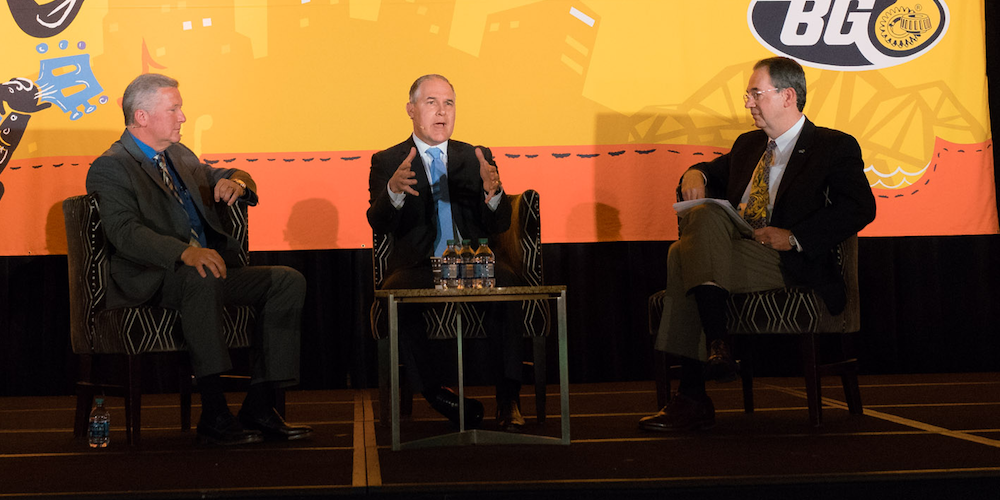
The following is a true story.
I took delivery of my new vehicle in January 2009. It was a smooth process and overall a pleasant buying experience. The salesman thanked me for my business and then he stuck his hand in my face, palm facing me, and said, “We do not want to see you again until the oil light tells you that you need an oil change.”
Even though it goes against my grain, I decided I’d play the game. At 11,000 miles the light came on and I stopped at the closest dealership for an LOF and tire rotation. At 22,000 miles the message center on the dash said it was time; so once again I had a dealership do an LOF and rotation. In both cases the combo service was about $39.95. (By the way, 11,000 miles between tire rotations is absurd…but, I’m only doing what the on-board message center and the service advisor tell me to do.)
My vehicle told me it was time for another oil change at 32,000 miles so I popped into the closest service center, a tire store, where they installed nitrogen in my tires and performed a fluid maintenance service on all my vital fluids. So why didn’t I go to a dealership? Because I never got the feeling they wanted my business. The selling dealer didn’t give me a service menu at the time of purchase. They never made reference to the service department. And I never received any correspondence from the service manager or an advisor inviting me in for service.
The two dealers that serviced my vehicle didn’t seem to want my business either. No menu, no call, no card, no nothing. Let me be clear, the service was great, the people were professional, the facilities were nice; but there was nothing to build loyalty. There wasn’t anything to tie me to the dealership.
The tire store wasn’t as clean as the dealership, the chairs in the waiting area were pretty worn, and the TV was probably purchased during Ronald Reagan’s first term. But, I learned that they offer a full array of vehicle maintenance services.
The bottom line is I lost loyalty to the dealerships because they never asked for my business or took any action to demonstrate they were anything but an oil change place. Maybe you’re reading this thinking, “OK Charlie, your car is low mileage and doesn’t need anything.” How about a quality, professionally installed bug shield? How about nitrogen in the tires? How about an air filter? How about a full wash and detail? All of which I would have purchased if asked!
At the very least they could have given me a menu, a multi-point inspection and set my next appointment. Yet they didn’t….and they’ve lost me.
Here’s a question for you: Has my story ever been repeated in your dealership? Don’t guess, but rather go to your DMS system and get the facts. How many new cars purchased in the first quarter 2009 have been in your service department in the past year?
Did you see the article written by Erin Kerrigan in the March 2010 edition of Dealer magazine?
“The back end is the new front end! The front end is a loss leader. It is credit-reliant, unpredictable, susceptible to the manufacturer’s challenges, and generally driven by forces for which the dealers have minimal control. By contrast, fixed operations is a profit engine. It is credit-resistant, recurring, predictable and if done well, it should be the pipeline for future car sales.”
Erin is right on the money…literally. By the way, she works for Auto Star, a growth capital firm; therefore, she’s looking at this strictly from the profitability angle.
She goes on to say, “The service and parts profit margin is 10 times larger than that of the new car department (45% versus 4.5%). In other words, the new car department has to work 10 times harder to earn the same gross profit.”
“At some level, service is a “need” not a “want”, whereas, a new car is usually a “want”; not a “need”. Most Americans require a functioning car and therefore, must service their vehicle in order to live their lives.”
Thank you, Erin, for telling it like it is.
Action point: Assemble your service “sales staff” for a meeting to discuss their importance to overall dealership profitability and customer loyalty. Copy this acticle and use it as your agenda. Teach them your expectations on handling customers with low mileage vehicles. Make sure they know how to recommend services needed today and how to plant seeds for the future.
In conclusion, I must tell you about a dealership in the northeast that “gets it!” Frenchie Coupal, owner of Frenchie’s Chevrolet in Massena, NY, along with his son, Scott, read my February article on Motivating Technicians. They implemented the “cash for upselling” process and in the first 22 days of March they increased fixed operations revenue $15,797. Their investment was $500 cash plus pizza and soda pop!
“It was fun for everyone,” Frenchie said. “We have already refilled the box with cash and we’re doing it again!”
They have nine techs, two advisors and they see about 850 cars on the drive per month. They are located 60 miles south of Montreal, Canada.
Frenchie concludes, “Since we began this emphasis on maintenance, our fixed coverage (service absorption) has gone up six points…from 64.8% to 70.9% …I’m very pleased!”
For more information on the technicians “cash for upselling” process and the play money template just send me an email and I’ll send the info your way.
Have a profitable summer! *



